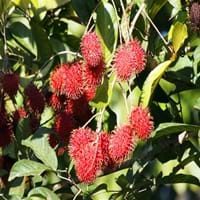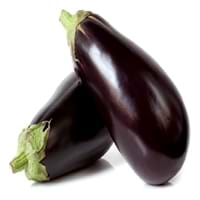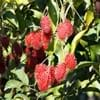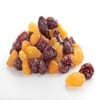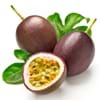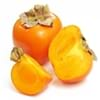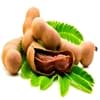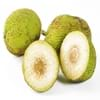Health Benefits
Anti-oxidant properties, Boosts immune system, Skin rejuvenation, Strengthening of bones
Cancer prevention, Heart care, Reduces blood circulation problems
General Benefits
Antiseptic properties, Cures headache, Removes waste from kidney
Digestive aid, Fights against infections, Flu treatment, Healing of wounds, Helps in weight loss, Treatment of common cold
Skin Benefits
Hydrates skin
Anti-aging benefits, Brightens and lightens complexion, Skin cleansing, Skin rejuvenation
Hair Benefits
Good conditioner
Prevents hair loss, Promotes longer and healthier hair, Protects hair, Rejuvenates scalp
Allergy Symptoms
Chest pains, Rhinitis, Wheezing
Abdominal pains, Anaphylaxis, Diarrhea, Dizziness, Hives, Itching in tongue and other parts of mouth, Tingling sensation in mouth, Vomiting
Side Effects
Unknown
Allergic reaction, Irritation, Nausea, Skin rash, Swelling
Best Time to Eat
As a snack in the late afternoon, Don't consume at night and before bed, Eat the fresh ones, avoid mixing with any other foods, don't eat after meal., Morning time (before lunch)
Along with meal, Don't consume at night and before bed
Vitamin A (Retinol)
Not Available
Vitamin B5 (Pantothenic Acid)
Vitamin C (Ascorbic Acid)
Vitamin K (Phyllochinone)
Calories in Fresh Fruit with Peel
Calories in Fresh Fruit without Peel
Not Available
Not Available
Calories in Frozen Form
Not Available
Calories in Dried Form
Not Available
Calories in Canned Form
Not Available
Type
Tree fruit, Tropical
Fruit vegetable, Tropical
Season
Early summer, Early winter, Late fall, Late spring
Spring, Summer
Varieties
Rongrien, Chompu, Rapiah, Bingjai and Lebak Bulus
Black Magic, Black Beauty, Black Bell, Sicilian, Italian, Indian (Baby), Japanese, Chinese and White
Color
Coral red, Yellow
Black, Green, Pink, Purple, Purplish black
Inside Color
Greyish-white
White
Taste
Sour, Sweet
Bitter, Slightly sweet, Spongy
Soil Type
Clay, Loam
Sandy loam
Climatic Conditions
Humid
Warm to hot climate
Facts about
- Oils extracted from its seeds is used to make soaps and candles.
- 'Rambut' means hairy in Malay.
- It makes the best hair mask.
- Seeds are edible and healthy too.
- In Italy, it's a belief that diet rich in eggplant leads to madness. Hence, they call it a 'crazy apple'.
- Eggplant contains nicotine & can help quit smoking.
- Juice made from its leaves and roots is medicinal.
Top Producer
Thailand
China
Other Countries
Africa, India, Indonesia, Malaysia, Philippines, Sri Lanka
Egypt, India, Indonesia, Iran, Iraq, Italy, Japan, Spain, Turkey
Top Importer
Singapore
United States of America
Top Exporter
Thailand
China
Botanical Name
Nephelium lappaceum
Solanum melongena
Synonym
Rambota
Solanum ovigerum or Solanum trongum
Subkingdom
Tracheobionta
Tracheobionta
Division
Tracheophyta
Magnoliophyta
Class
Magnoliopsida
Magnoliopsida
Subclass
Rosidae
Asteridae
Order
Sapindales
Solanales
Family
Sapindaceae
Solanaceae
Species
N. lappaceum
S. melongena
Generic Group
Not Available
Not Available
Difference Between Rambutan and Eggplant
We might think that Rambutan and Eggplant are similar with respect to nutritional value and health benefits. But the nutrient content of both fruits is different. Rambutan and Eggplant Facts such as their taste, shape, color, and size are also distinct. The difference between Rambutan and Eggplant is explained here.
The amount of calories in 100 gm of fresh Rambutan and Eggplant with peel is 69.00 kcal and 25.00 kcal and the amount of calories without peel is Not Available and Not Available respectively. Thus, Rambutan and Eggplant belong to High Calorie Fruits and Low Calorie Fruits category.These fruits might or might not differ with respect to their scientific classification. The order of Rambutan and Eggplant is Sapindales and Solanales respectively. Rambutan belongs to Sapindaceae family and Eggplant belongs to Solanaceae family. Rambutan belongs to Nephelium genus of N. lappaceum species and Eggplant belongs to Solanum genus of S. melongena species. Beings plants, both fruits belong to Plantae Kingdom.
